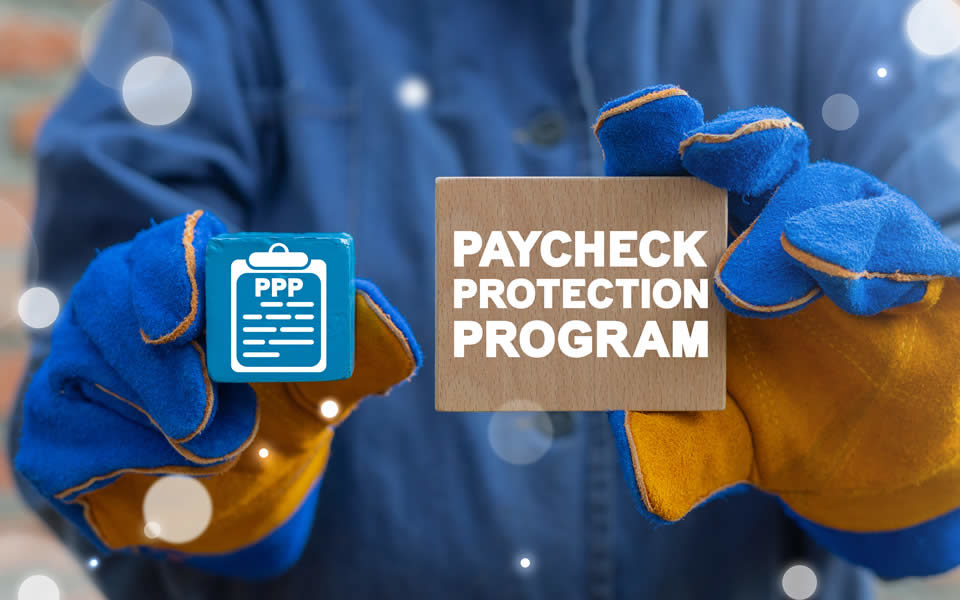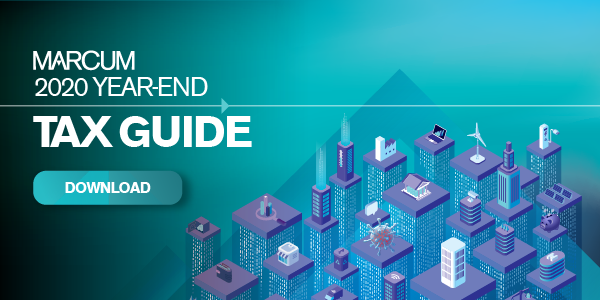Non-Deductibility of Eligible PPP Expenses Where Forgiveness is Reasonably Expected
By Andrew Finkle, Partner, Advisory Services
On November 18, 2020, the IRS issued Revenue Ruling 2020-27, which addresses when a borrower under the Paycheck Protection Program (PPP) should exclude the expenses as deductions when determining taxable income if used to obtain forgiveness of their PPP loan. In short, for a calendar year taxpayer, the expenses are non-deductible for year-end 2020 if there is a reasonable expectation of forgiveness, regardless of whether the borrower files a forgiveness application in 2020 or 2021 and of when the actual forgiveness event occurs. The ruling does not address fiscal year taxpayers, nor does it address how to allocate non-deductible expenses among the various expenses used for the loan forgiveness application. However, there are clues in the ruling as to how taxpayers can proceed.
Calendar-Year Taxpayers
The ruling hinges on the line of authorities addressing reimbursements, which hold that otherwise allowable deductions are disallowed if there is a reasonable expectation of reimbursement. The ruling concludes that a PPP borrower has a reasonable expectation of reimbursement (as reimbursement is not unforeseeable) and, therefore, a deduction in 2020 is disallowed. Further, the actual filing of the forgiveness application and the ultimate forgiveness decision itself are not material to the analysis. Rather, the loan forgiveness procedures and guidance are clear and readily accessible to make the forgiveness determination. In fact, the ruling specifically indicates that it does not matter if a borrower has applied for forgiveness or not. The expenses are nondeductible in 2020.
Keep in mind, only the amount of the loan that is forgiven results in nondeductible expenses. Therefore, if a borrower only has partial loan forgiveness, only the expenses used for the part ultimately forgiven are nondeductible.
Fiscal-Year Taxpayers
Because the reasoning within the ruling indicates that the borrower has a reasonable expectation of the loan being forgiven, it follows logically that a fiscal-year taxpayer would look to when the expenses were incurred or paid to qualify for forgiveness. Two key aspects of this analysis are (i) the date the PPP loan was received, and (ii) the fiscal year-end of the taxpayer.
For example, assume a borrower with a September fiscal year-end applied for and received a PPP loan with an April loan date. It is likely that most, if not all, of the expenses were incurred between April and September 2020 and, therefore, should be considered as nondeductible within the September 2020 fiscal year-end tax return.
Now, let’s assume a borrower has a September fiscal year-end and the loan proceeds were received in July. It is likely that the expenses used for loan forgiveness would span multiple tax years– fiscal year 2020 and also fiscal year 2021. Accordingly, it seems reasonable that an allocation of the expenses between the two tax years would be acceptable. However, there is no guidance specifically indicating the use of this approach.
Regarding the allocation of expenses used for loan forgiveness, there are still many unknowns. Whether wages, employee benefits, rent, utilities, or interest are reduced may not matter. However, for taxpayers with a research and development tax credit, or those who qualify for a qualified business income deduction, the allocation to wages will definitely matter. Marcum advises our clients to plan for various possibilities and remain patient for future guidance.
It should be noted that members of Congress disagree with the conclusion that costs are nondeductible, and yet to date, Treasury has not reversed its decision.
As we traversed through the PPP landscape over the past eight months, we learned two basic truths during the twists and turns. The first is that patience is usually the most prudent path forward. The second is to not make an irreversible decision until it is absolutely necessary. Keep both of these in mind as you plan for the various outcomes of the PPP program.
If you have any questions, please consult your Marcum professional. If you are not a client, we encourage you to reach out to us. Our goal is to provide information to help businesses succeed through this pandemic.
Coronavirus Resource Center
Have more questions about the impact of the coronavirus on your business? Visit Marcum’s Coronavirus Resource Center for up-to-date information.





















